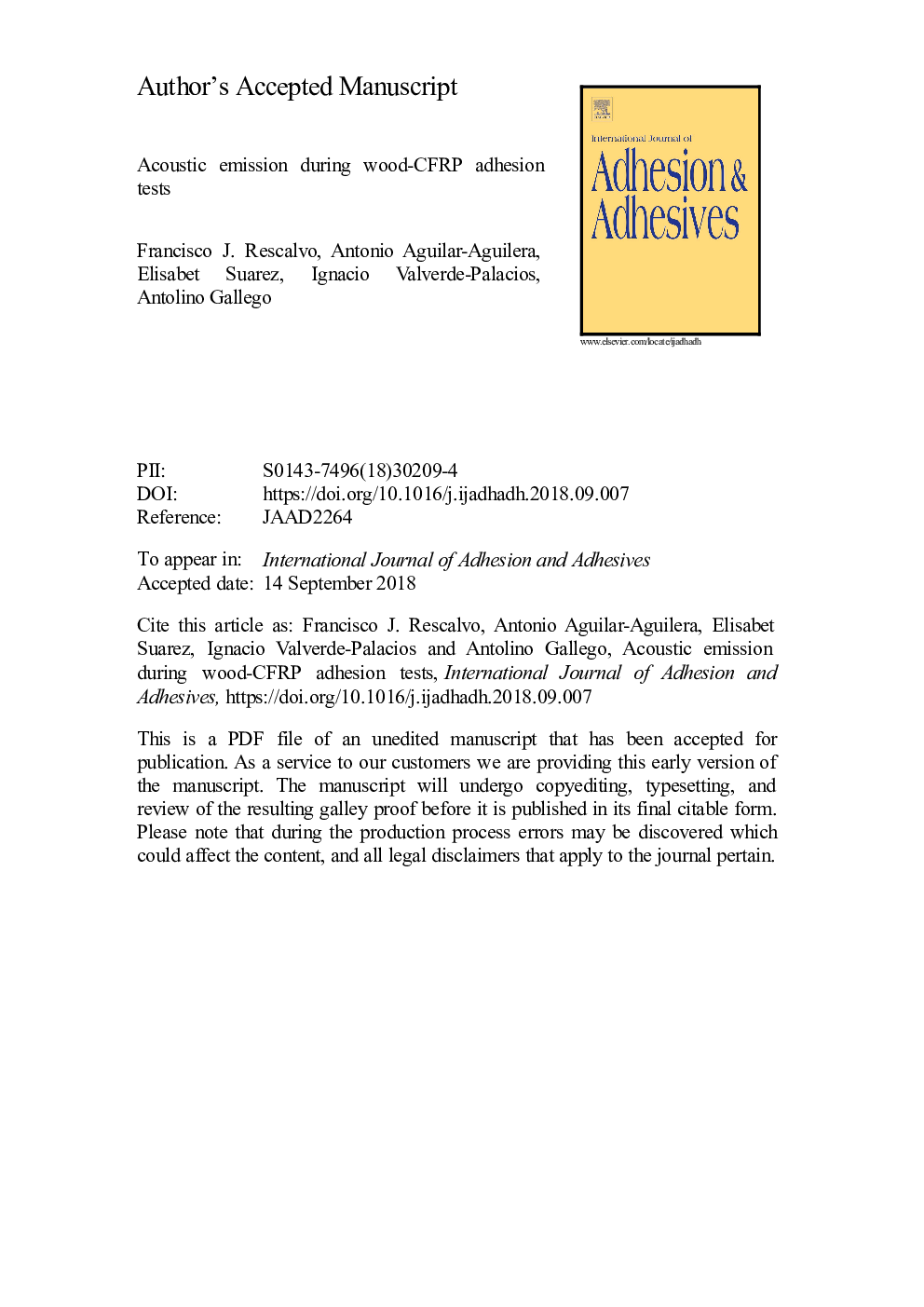| Article ID | Journal | Published Year | Pages | File Type |
|---|---|---|---|---|
| 11016317 | International Journal of Adhesion and Adhesives | 2018 | 23 Pages |
Abstract
The paper deals with the application of the acoustic emission (AE) technique using multi-resonant sensors to complement the mechanical and visual evaluation of the adhesion between carbon FRP (CFRP) and pine wood by means of pull-off tests. The experimental work compares the behavior of pultruded laminates and carbon fabrics, as well as two types of epoxy resins with very different densities, with or without primer applied to the wood surface. The wood used comes from the rehabilitation of a historical building in the city of Granada, with more than 200 years in service. For the analysis of acoustic emission data, a new methodology based on two steps is proposed. Firstly, the mis-acquired signals during the test are automatically discarded through the use of measured square error calculated in appropriate time windows, so that they do not influence during the final evaluation. In the second step, the signals that passed this filter are divided into three groups according to their predominant frequency band. The results show a good correlation between the mechanical observations and failure modes, and the distribution of AE signals into the three groups previously considered. This conclusion corroborates its possible application for evaluation of the FRP-wood adherence both in field and laboratory scenarios.
Keywords
Related Topics
Physical Sciences and Engineering
Engineering
Mechanical Engineering
Authors
Francisco J. Rescalvo, Antonio Aguilar-Aguilera, Elisabet Suarez, Ignacio Valverde-Palacios, Antolino Gallego,
